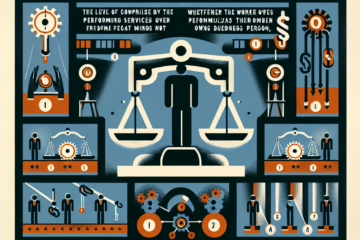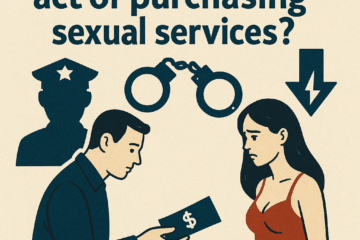What Should I Do If Somebody Sued Me In BC?
Table of contents
If you find yourself being sued in British Columbia (BC), Canada, it’s important to handle the situation promptly and effectively. Being sued can happen in various fields such as personal injury, contract disputes, property disputes, and more. The process can be complex and stressful, but understanding the steps you need to take can help you navigate the legal landscape more confidently. Here’s what you should do across different scenarios:
1. Review the Notice Carefully
- Understand the Claim: The first step is to carefully read the notice of civil claim or lawsuit document you received. It outlines why you are being sued, the damages or remedies sought, and the legal grounds for the claim.
2. Respond to the Lawsuit
- Seek Legal Advice: Before you do anything else, consult with a lawyer who specializes in the area of law you’re being sued under (e.g., personal injury, contract law). A lawyer can help you understand the claim, the potential consequences, and your options for defense.
- File a Response: In BC, you typically have 21 days to file a response to civil claim after being served. Failing to respond can result in a default judgment against you, where the plaintiff may be awarded what they sought without further input from you.
3. Understand the Legal Process
- Discovery Process: Both parties exchange relevant documents and information related to the case. This may involve written questions known as interrogatories and depositions, where witnesses are questioned under oath.
- Pre-Trial Procedures: There may be pre-trial conferences or mediation attempts to settle the dispute out of court. It’s often in both parties’ best interests to reach a settlement to avoid the costs and unpredictability of a trial.
- Trial: If the case goes to trial, both sides will present their evidence and arguments. The process could take days to weeks, depending on the complexity of the case.
Fields of Suing and What to Do
Personal Injury Claims
- Seek Immediate Legal Representation: Personal injury law can be complex. A lawyer can help you navigate insurance claims, potential settlements, and the litigation process.
- Gather Evidence: Collect all medical reports, records of expenses related to the injury, and any documentation that supports your defense.
Contract Disputes
- Review the Contract: Analyze the contract involved with your lawyer to understand the obligations and whether there has been a breach.
- Prepare Your Defense: Collect all correspondence, contracts, amendments, and any other documents related to the dispute.
Property Disputes
- Understand the Dispute: Property disputes can range from boundary issues to disputes over property sales. Clarify the issue at hand.
- Gather Documentation: Compile all relevant documents, including property deeds, agreements, and any communications related to the dispute.
Employment Disputes
- Review Employment Agreements: Understand the terms of any employment contract or agreements, including termination clauses.
- Collect Evidence: Prepare any relevant communications, performance reviews, and other documents related to your employment and the dispute.
4. Consider Settlement Options
- Mediation and Negotiation: Many disputes are resolved through negotiation or mediation, where a neutral third party helps both sides reach an agreement.
- Understand the Implications: Consider the financial, time, and emotional costs of continuing to trial versus the potential benefits and drawbacks of settling.
5. Prepare for the Outcome
- Financial Planning: Be prepared for the possibility of having to pay damages or legal costs if the judgment is not in your favor.
- Compliance: If the court issues an order or judgment against you, ensure you understand and comply with its terms to avoid further legal issues.
Final Thoughts
Being sued is a serious matter that requires immediate attention and appropriate action. Working closely with a knowledgeable lawyer will help you understand your legal position, explore your options, and make informed decisions throughout the process. Remember, the legal system aims to resolve disputes fairly, and there are mechanisms in place to defend yourself and present your side of the story.

FAQ
The first step is to carefully read the notice of civil claim you received. It is crucial to understand why you are being sued and the claims against you. Immediately seek legal advice from a lawyer who specializes in the relevant field of law.
You typically have 21 days from the day you were served with the notice of civil claim to file a response with the court. If you fail to respond within this timeframe, the court may issue a default judgment against you.
Yes, you can represent yourself in court. However, legal proceedings can be complex, and the outcome of the case can have significant consequences. It is highly recommended to seek legal advice and consider representation by a qualified lawyer.
Ignoring a lawsuit is strongly discouraged. If you do not respond to the notice of civil claim, the plaintiff may apply for a default judgment against you, which means the court may grant the plaintiff what they are asking for without further input from you.
The discovery process is a pre-trial phase where both parties exchange information and documents related to the case. This can include written questions (interrogatories), requests for documents, and depositions (oral questioning under oath).
Yes, many lawsuits are settled out of court through negotiation or mediation. Both parties, often with the assistance of their lawyers or a mediator, can agree on a settlement to resolve the dispute without going to trial.
Mediation is a voluntary process where a neutral third party (mediator) helps the disputing parties reach a mutually acceptable agreement. Mediation aims to resolve disputes in a less formal, more collaborative manner than court proceedings.
The cost of defending a lawsuit can vary widely depending on the complexity of the case, the amount of legal work required, and the length of time it takes to resolve. Costs can include lawyer’s fees, court fees, and expenses related to gathering evidence and preparing your case.
If you cannot afford a lawyer, you may be eligible for legal aid or assistance from pro bono (free) legal services provided by various organizations in BC. It’s also possible to represent yourself, but you should seek as much guidance as possible, for example, from legal clinics or legal information centers.
You can find a lawyer through the Law Society of British Columbia’s Lawyer Referral Service, which can provide you with the names of lawyers in your area who can handle your specific legal issue. You can also ask for recommendations from friends, family, or business associates.
Pax Law can help you!
Our lawyers and consultants are willing, ready, and able to assist you. Please visit our appointment booking page to make an appointment with one of our lawyers or consultants; alternatively, you can call our offices at +1-604-767-9529.
Discover more from Pax Law Corporation
Subscribe to get the latest posts sent to your email.



0 Comments